
Warframe is big. Both in its success and in its scale, a vast action game that is as much about space combat, apartment decorating, pet training, fishing, hover surfing, mech fighting and open world exploration, as it is the central ninja combat that defined its debut. It's now ten years old, a feat few of its service game and MMO peers can boast. Like its Tenno, Warframe is an underdog that prevailed against the odds.
Digital Extremes itself is almost 30 years old and spent the 2000s doing work-for-hire, creating licensed games for a variety of clients. The Darkness, Star Trek, Dungeons & Dragons... the studio survived by taking whatever work it could. But there was always one dream project, a little sci-fi game the team hoped to one day get off the ground. I asked where the idea came from. "Like every game dev in [2004] they played Resident Evil 4 and they wanted to make their own version of it," says Steve Sinclair, former creative director on Warframe, before he and fellow director Geoff Crookes both burst into laughter. Every answer they give is with a smile and you get the sense they're two guys who never take themselves too seriously. But there is some truth to their joke.
"Everyone rediscovered third-person," Sinclair explains, pointing to Resident Evil 4's success and games like Gears of War, following the era of first-person dominance, making their project seem more viable. "[Warframe] has its roots in what we call the sci-fi version of Dark Sector."
It was this version they pitched to numerous publishers in what is now dubbed the rejection tour'. "I was on the road pitching for a year, all over the world with a little cube PC that would always get scrubbed by the bomb squads." Despite the effort, publishers weren't interested. "Sci-fi was dead," they were told. "So like a really confident artist... I completely compromised our vision for it [laughs]."
This story is from the {{IssueName}} edition of {{MagazineName}}.
Start your 7-day Magzter GOLD free trial to access thousands of curated premium stories, and 9,000+ magazines and newspapers.
Already a subscriber ? Sign In
This story is from the {{IssueName}} edition of {{MagazineName}}.
Start your 7-day Magzter GOLD free trial to access thousands of curated premium stories, and 9,000+ magazines and newspapers.
Already a subscriber? Sign In

A New Dawn - The rise, fall and rise again of PC Gaming in Japan
The so-called 'Paso Kon' market (ie katakana's transliteration of 'Pasonaru Computa') in Japan was originally spearheaded in the 1980s by NEC's PC-8800 and, later, its PC-9800.
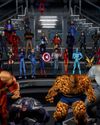
MARVEL: ULTIMATE ALLIANCE
Enter the multiverse of modness.
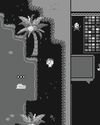
SLIDES RULE
Redeeming a hated puzzle mechanic with SLIDER
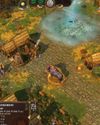
GODS AND MONSTERS
AGE OF MYTHOLOGY: RETOLD modernises a classic RTS with care

PHANTOM BLADE ZERO
Less Sekiro, more Wo Long: Fallen Dynasty

STARR-MAKING ROLE
Final Fantasy XVI's BEN STARR talks becoming a meme and dating summons
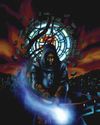
THIEF GOLD
Learning to forgive myself for knocking out every single guard.

HANDHELD GAMING PCs
In lieu of more powerful processors, handhelds are getting weirder
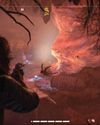
FAR FAR AWAY
STAR WARS OUTLAWS succeeds at the little things, but not much else shines
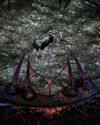
FINDING IMMORTALITY
Twenty-five years on, PLANESCAPE: TORMENT is still one of the most talked-about RPGs of all time. This is the story of how it was created as a ‘stay-busy’ project by a small team at Black Isle Studios